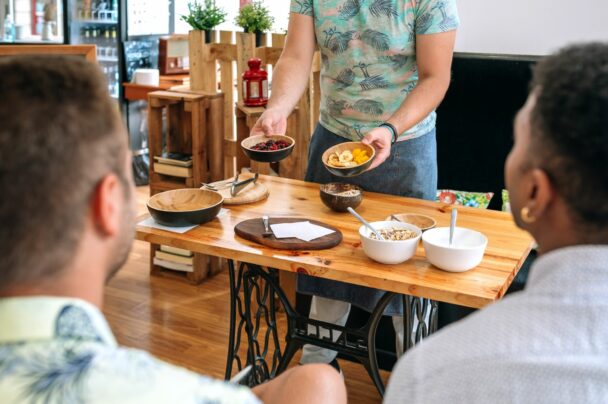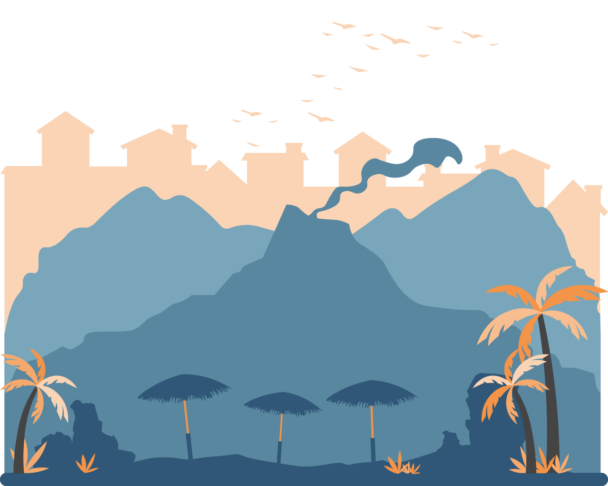Description
In this innovative course, educators delve into Project-Based Learning (PBL) methodology with a flavorful twist – using the rich and diverse cuisine of the Canary Islands as a central theme.
To truly engage and motivate learners, lessons need to have real-world relevance and offer the chance to develop lasting skills and useful competencies, yet school and life outside the classroom can seem worlds apart.
Project-Based Learning (PBL) offers a compelling solution to bridge this gulf.
Through PBL, students engage in meaningful, real-world projects that foster deep understanding and skills development in a student-led context.
Easily implemented, PBL can invigorate the educational experience crossing the traditional boundaries of school subjects and age barriers.
Throughout the week, attendees will engage in a blend of theoretical sessions and hands-on activities, learning to design and implement PBL projects that can be adapted to various educational settings.
The course will cover the essentials of PBL, including project design, assessment strategies, and student engagement, all while providing practical opportunities to apply these concepts through cooking workshops, local market visits, and cultural excursions.
Outdoor activities will play a crucial role, offering experiential learning moments that highlight the islands’ geography, history, and cultural diversity.
By the end of the course, educators will have not only gained a deep appreciation for Canary Islands culinary heritage but also the tools and confidence to create engaging, real-world projects for their learners.
Educators will be equipped with practical strategies, a deeper understanding of PBL’s impact on learning, and a bespoke PBL project plan ready for classroom implementation.
Participants will leave with a solid foundation in PBL, ready to enrich their educational practice with innovative, effective, and delicious learning projects.
What is included
Learning outcomes
The course will help participants to:
- Gain a comprehensive understanding of PBL and its benefits for educators;
- Learn to integrate any curriculum topic into a PBL framework;
- Discover strategies and tools to motivate students and enhance key competencies;
- Explore a variety of PBL-compatible activities;
- Confidently apply PBL in their teaching practice and within their school communities;
- Master the assessment of PBL projects and student learning;
- Develop detailed, effective, and manageable PBL lesson plans.
Tentative schedule
Day 1 – Introduction to PBL and Canarian Cuisine as an educational tool
- Icebreaker activities;
- Course and participant introductions – overview of the week’s activities;
- Introduction to Project-Based Learning: 10 steps to create a PBL project;
- Exploring Canary Island Cuisine as a PBL Theme: driving question and collaborative teams (Steps 1 and 2);
- Workshop: Brainstorming session on implementing school-wide PBL initiatives inspired by culinary themes.
Day 2 – Steps 3 and 4: Defining the final product, organization, and planning
- How will I answer the driving question? (final product);
- What do I need to know? (learning goals, Key competencies);
- Who’s going to do what? (assigning roles);
- What we are going to do and when? (defining tasks and timing);
- Outdoor Activity: Visit a local market in Tenerife to explore regional ingredients and discuss project ideas;
- Workshop: Integrating culinary heritage into curriculum topics. Students, in teams, will formulate their project’s driving questions and hypotheses based on their teaching subjects and day-to-day context.
Day 3 – Steps 5 and 6: Research and exploration, analysis and synthesis
- Where do I find relevant information?;
- How do I fact-check that the info is accurate?;
- How do I share the info that I have gathered with my teammates?;
- What remains (in the final product) and what goes (is not relevant)?;
- Workshop: Students will research the topic. They will find info that will allow them to create one lesson plan with activities, and design to help their students train specific skills and dominate concepts related to their respective subject. They will use their local cuisine to reach that end.
Day 4 – Steps 7 and 8: Project development workshop and presentation
- Setting up timelines, milestones, and assessment criteria and rubrics;
- Integrating fieldwork and outdoor activities into the project design;
- Students will design and create a video tutorial explaining their lesson plan, using Canva;
- Outdoor Activity: Guided visit to an organic farm or vineyard to learn about local agricultural practices and their impact on Canarian cuisine.
Day 5 – Steps 9 and 10: Finalizing and presenting PBL projects
- Finalizing PBL project plans and preparation for presentations;
- Presenting created PBL plans to the group for feedback and discussion.
Day 6 – Course closure and cultural activities
- Course evaluation: round-up of acquired competencies, feedback, and discussion;
- Awarding of the course Certificate of Attendance;
- Excursion and other external cultural activities.


